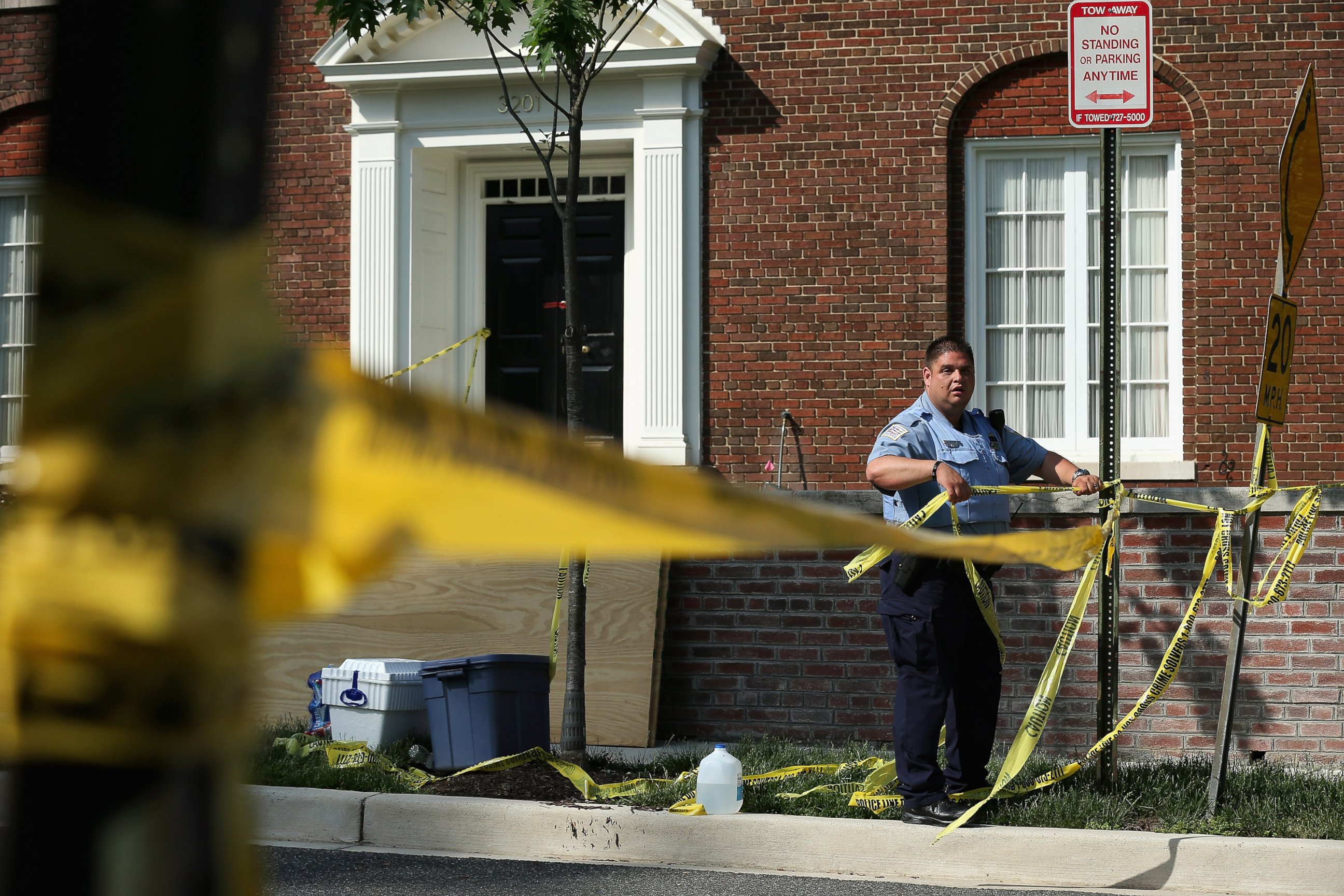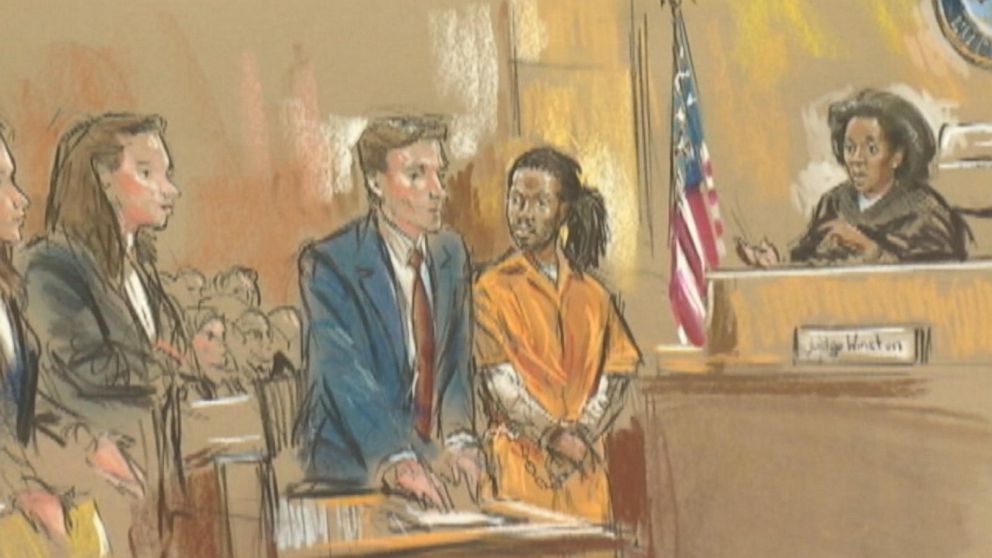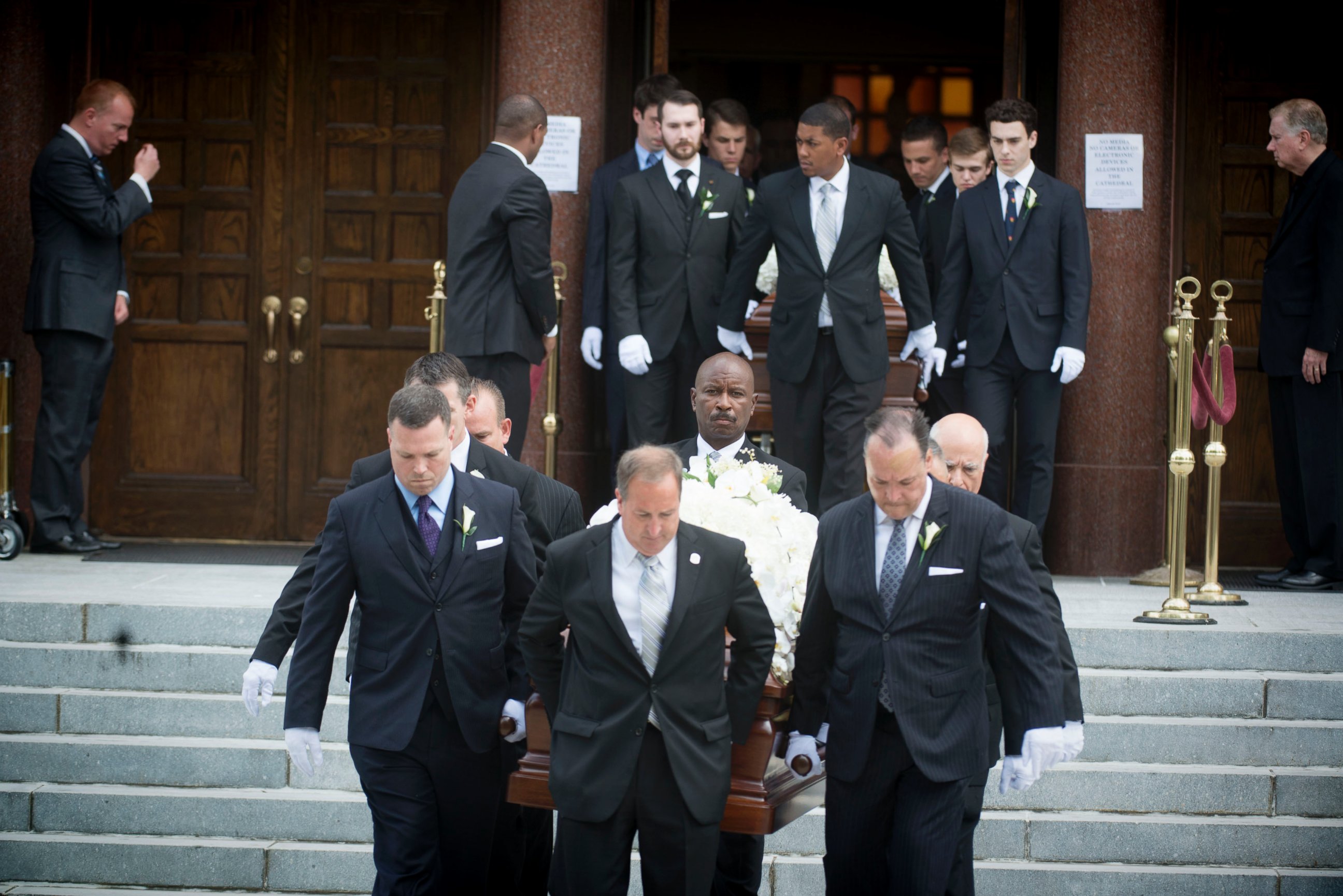Mystery Surrounds DC Mansion Murders 1 Year Later
Why were three family members and their housekeeper brutally murdered?
— -- It was the brutal slaughter of a wealthy family in their own home –- a frightening crime that came to be known as the D.C. mansion murders. A father, mother, son and their housekeeper were tied to chairs, beaten and set on fire. The mayor of Washington, D.C., called it “an act of evil,” and police officials said the crimes “required the presence and assistance of more than one person.”
One year later, just one suspect has been charged for the murders of Amy, Savvas and Philip Savopoulos, and their housekeeper, Veralicia Figueroa. The motive behind the murders remains a mystery, and investigators have remained silent on the prospect of indicting additional suspects.
Here’s a recap of what we know:

The Crime
The murders took place inside the Savopouloses’ multi-million-dollar mansion in an elite section of Washington, D.C. -- a neighborhood that is home to many of the Capitol’s rich and powerful.
In court documents, investigators say that three members of the family and Figueroa were held captive overnight from May 14 to 15 of last year. There were no signs of forced entry, according to authorities, and neighbors didn’t notice anything unusual until the afternoon of May 15, when smoke poured from the windows of the home, and the fire department was summoned.
Inside, firefighters discovered the ghastly scene -- the bodies of the four murder victims. Police later said the adult victims had been bound to chairs, beaten with a baseball bat, and strangled. The 10-year-old boy, Philip, was found in a bedroom. An autopsy determined that he had been killed by “thermal and sharp-force injuries.”

The Investigation
A quick forensic find provided the first breakthrough in the case: A half-eaten pizza found in the home yielded DNA evidence that tied 34-year-old Daron Dylon Wint to the scene. Wint -- a former employee of American Iron Works, a company owned by Savvas Savopoulos -- was taken into custody after a manhunt led authorities from D.C. to Brooklyn and back again.
Savvas Savopoulos’ driver added more mystery to the case, telling police his boss had texted him the night before the murders, and ordered him to withdraw $40,000 and leave the money on the seat of one of Savvas Savopoulos' cars in the family’s garage. Police confirm the driver carried out his orders.
The afternoon of the murders, police in neighboring Prince George’s County, Maryland, found another car -- Amy Savopoulos’ Porsche -- burning in a church parking lot. The next day, police found surveillance footage from shortly after the murders. The footage showed a man, carrying a bag, apparently running in an alley behind the Savopoulos home.
A regional manhunt for Wint was launched, and on May 20, D.C. police tracked him down and stopped his vehicle near the Maryland-D.C. border. Wint was riding in a sedan with two women. A truck following Wint’s car was also stopped. There were two men in the truck -- one, Wint’s brother -- and police filed court documents saying that “a large stack of what appeared to be $100 bills” and money orders were found in their vehicle.

Unanswered Questions
Why were all of the people riding with Wint when he was arrested released without charges? If the $100 bills found in the truck were from the cash delivered to the Savopoulos home, couldn’t those in possession of that money be charged as accessories to the crime?
The motive for the heinous murders has never been established, and that has led to more unanswered questions. Was Wint a disgruntled employee, or was the home invasion simply a play for ransom money? Since the ransom money was indeed paid –- the $40,000 in cash –- why was the family killed? Or could this have been a “murder for hire” sparked by a business deal gone wrong –- an unknown party who had his or her own reasons to go after Savvas Savopoulos and his family?
But the biggest question by far is, did someone help to subdue, tie up, torture and kill the four victims, including a 10-year-old boy? The lead detective in the case has written in court documents that the crime “required the presence and assistance of more than one person.”
ABC News reached out to police and prosecutors; both declined to comment, citing the ongoing investigation.

What’s Next
A year after the murders, the only person charged in the deaths is Wint, who faces multiple counts of murder, arson and kidnapping. Wint has pleaded not guilty to the charges against him.
A court hearing in his case is scheduled for next week, and grieving family and friends of the victims are hoping the hearing may provide new insights, new clues or even some answers as to why their loved ones were so brutally murdered.




